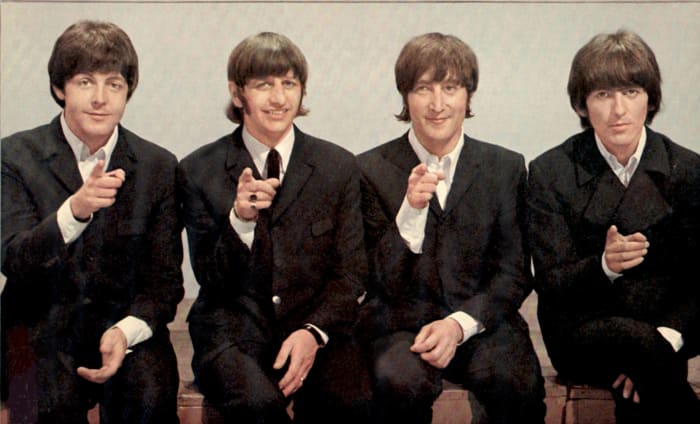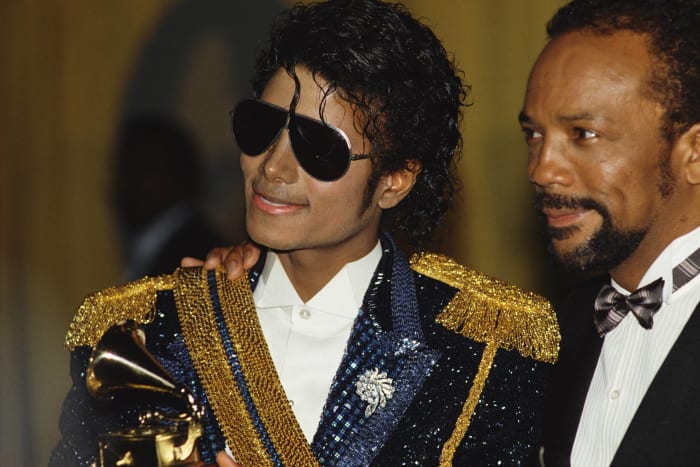- Home
- Quizzes
- My Quiz Activity
- Newsletters
- Sports Betting
- MY FAVORITES
- Add Sports/Teams
- SPORTS
-
NFL
- NFL Home
- Arizona Cardinals
- Atlanta Falcons
- Baltimore Ravens
- Buffalo Bills
- Carolina Panthers
- Chicago Bears
- Cincinnati Bengals
- Cleveland Browns
- Dallas Cowboys
- Denver Broncos
- Detroit Lions
- Green Bay Packers
- Houston Texans
- Indianapolis Colts
- Jacksonville Jaguars
- Kansas City Chiefs
- Las Vegas Raiders
- Los Angeles Chargers
- Los Angeles Rams
- Miami Dolphins
- Minnesota Vikings
- New England Patriots
- New Orleans Saints
- New York Jets
- New York Giants
- Philadelphia Eagles
- Pittsburgh Steelers
- San Francisco 49ers
- Seattle Seahawks
- Tampa Bay Buccaneers
- Tennessee Titans
- Washington Commanders
-
MLB
- MLB Home
- Arizona Diamondbacks
- Atlanta Braves
- Baltimore Orioles
- Boston Red Sox
- Chicago White Sox
- Chicago Cubs
- Cincinnati Reds
- Cleveland Guardians
- Colorado Rockies
- Detroit Tigers
- Houston Astros
- Kansas City Royals
- Los Angeles Angels
- Los Angeles Dodgers
- Miami Marlins
- Milwaukee Brewers
- Minnesota Twins
- New York Yankees
- New York Mets
- Oakland Athletics
- Philadelphia Phillies
- Pittsburgh Pirates
- San Diego Padres
- San Francisco Giants
- Seattle Mariners
- St. Louis Cardinals
- Tampa Bay Rays
- Texas Rangers
- Toronto Blue Jays
- Washington Nationals
-
NBA
- NBA Home
- Atlanta Hawks
- Boston Celtics
- Brooklyn Nets
- Charlotte Hornets
- Chicago Bulls
- Cleveland Cavaliers
- Dallas Mavericks
- Denver Nuggets
- Detroit Pistons
- Golden State Warriors
- Houston Rockets
- Indiana Pacers
- Los Angeles Clippers
- Los Angeles Lakers
- Memphis Grizzlies
- Miami Heat
- Milwaukee Bucks
- Minnesota Timberwolves
- New Orleans Pelicans
- New York Knicks
- Oklahoma City Thunder
- Orlando Magic
- Philadelphia 76ers
- Phoenix Suns
- Portland Trail Blazers
- Sacramento Kings
- San Antonio Spurs
- Toronto Raptors
- Utah Jazz
- Washington Wizards
-
NHL
- NHL Home
- Anaheim Ducks
- Arizona Coyotes
- Boston Bruins
- Buffalo Sabres
- Calgary Flames
- Carolina Hurricanes
- Chicago Blackhawks
- Colorado Avalanche
- Columbus Blue Jackets
- Dallas Stars
- Detroit Red Wings
- Edmonton Oilers
- Florida Panthers
- Los Angeles Kings
- Minnesota Wild
- Montreal Canadiens
- Nashville Predators
- New Jersey Devils
- New York Islanders
- New York Rangers
- Ottawa Senators
- Philadelphia Flyers
- Pittsburgh Penguins
- San Jose Sharks
- Seattle Kraken
- St. Louis Blues
- Tampa Bay Lightning
- Toronto Maple Leafs
- Vancouver Canucks
- Vegas Golden Knights
- Washington Capitals
- Winnipeg Jets
- NCAAF
- NCAAM
- Boxing
- Entertainment
- Lifestyle
- Golf
- MMA
- Soccer
- Tennis
- Wrestling
- More Sports
- RESOURCES
- My Account
- YB on Facebook
- YB on Twitter
- YB on Flipboard
- Contact Us
- Privacy Policy
- Terms of Service

Old-school Grammy winners we still listen to
The Grammys aren’t a Hall of Fame. The awards recognize particular artists at a particular moment – and that moment doesn’t always stand up to posterity. Many of the performers, songs, and albums fade from the pop culture memory after a while. But many of them leave lasting legacies – here are some of the winners from previous decades whose music remains relevant.
The Beatles

Of course we’re still listening to The Beatles. They were biggest band in the world, and in some ways they still are. They pioneered the possibilities of the recording studio and established the framework for five decades of rock music that followed them. Everything they did still resonates.
Glen Campbell

The Rhinestone Cowboy’s smooth psychedelic country soul — hits like “By the Time I Get to Phoenix,” “Gentle on My Mind” and “Wichita Lineman — signified a quiet revolution in country music in the late 1960s and early ’70s. Campbell, who died in 2017, never repeated that success, but his songs became country and oldies radio standards and inspired two or three generations of daring songwriting.
Johnny Cash

A series of stark, haunting acoustic albums produced by Rick Rubin reintroduced the Man in Black to new audiences in the 1990s and ’00s and put classics like “I Walk the Line,” “Ring of Fire” and “Folsom Prison Blues” back into rotation.
Phil Collins

The former Genesis frontman and drummer has rebounded from his ’90s doldrums to become an icon of retro hipster cool — the combination of Collins’ earnest British blue-eyed ’80s soul and his self-effacing public persona proved irresistible to Gen Xers and millennials.
Sam Cooke

Cooke combined the emotional intensity of gospel with the cosmopolitan sophistication of Frank Sinatra. His ambitions were cut short with his death, in 1964, but the shattering posthumous release of “A Change Is Gonna Come” signaled the new heights he was aiming for.
D'Angelo

For years, D’Angelo was best known for not releasing music — it took 14 years for the follow-up to his Grammy-winning 2000 R&B masterpiece, "Voodoo." But when it finally arrived, "Black Messiah" confirmed D’Angelo as a masterful songwriter and soul-music visionary.
Bob Dylan

No other artist contributed as much to our idea of what the 1960s meant. Besides an enormous catalog of classic songs, Dylan merged folk rock, protest music, psychedelic absurdity and a canny understanding of modern celebrity.
Fleetwood Mac

Fleetwood Mac’s sprawling, ambitious and emotionally complex 1970s masterpieces — Grammy Album of the Year "Rumours" and its even more adventurous follow-up, "Tusk"— still define American rock’s decadent period.
Aretha Franklin

The Queen of Soul has lived up to her title, with a majestic legacy that includes some of the most powerful performances of the golden age of soul in the late 1960s and early ’70s — “I Never Loved a Man (The Way I Love You)”, “Chain of Fools,” “(You Make Me Feel Like a) Natural Woman,” “Respect.”
Lauryn Hill

The former Fugees frontwoman’s debut album, "The Miseducation of Lauryn Hill," is an astounding record, even 20 years later — a neo-soul/hip-hop tour de force of profound funkiness and vulnerability that has proved to be impossible to follow up.
Michael Jackson

Michael Jackson’s legacy is in better condition now than it was when he died in 2009. The scandals that overwhelmed Jackson’s public life in the 1990s and early ’00s have faded, allowing the full scope of a lifetime of music — thrilling, futuristic pop R&B that still sounds like nothing else — to come into focus for the first time.
Jay-Z

The Empire State hip-hop impresario is still nailing it nearly a decade after his first Grammy win — he leads all nominees heading into the 2018 Grammys with eight, giving him a chance to jump to second place on the all-time Grammy wins list. He’s also easing into the role of elder pop statesman with the revealing "4:44" and a recent high-profile New York Times interview.
Willie Nelson

Country music's unpredictable outlaw has more masterpieces, in more styles, than he could have imagined when he arrived in Nashville in 1960. And he’s still adding to that list. His recent output includes a late-career meditation on mortality ("God’s Problem Child"), a tribute to his mentor, Ray Price, a collection of Gershwin songs and a duets album.
Outkast

With a series of three increasingly funky and quirky albums —"ATLiens," "Aquemini" and the landmark "Stankonia"— Atlanta’s beloved out-there duo showed new directions for rap and paved the way for the ’00s breakthrough of Southern hip-hop. The 2003 double album, "Speakerboxxx/The Love Below," was the apex and the breaking point — André 3000 and Big Boi had fulfilled the potential of one of hip-hop’s enduringly singular acts.
Prince

Prince was a fearless and iconoclastic performer and songwriter. He spent his entire career challenging the music industry — and his audiences — to drop their prejudices and hear his music on its own terms. And it was worth it. Before he died, he created a monumental body of work that drew on psychedelic rock, classic pop, soul, hip-hop, jazz and funk but refused to see the boundaries between any of them.
Otis Redding

Otis Redding was already dead — in a plane crash, at 26 — when he won two Grammys for “(Sittin’ On) The Dock of the Bay,” the pastoral 1968 soul ballad that made him a posthumous R&B legend. Redding’s discography is small — just five solo albums, plus a collaboration with Carla Thomas — but every bit of it is worth hearing, and hearing again.
Frank Sinatra

James Kaplan’s recent two-volume Sinatra biography and the vogue for midcentury cool have kept Sinatra in the public eye in the 21st century. But there’s little risk that the Chairman’s legacy will subside any time soon. His smooth artistry, that instantly recognizable voice and the enduring strength of classic albums like "In the Wee Small Hours, Songs for Swingin’ Lovers!" and "September of My Years" guarantee Sinatra a place in the American pop pantheon.
Bruce Springsteen

The Boss remains as relevant now, approaching 70, as he’s ever been. And he’s probably busier now than ever. In the 21st century, he’s released six solo albums, campaigned for Barack Obama and Hillary Clinton, written a best-selling memoir and created and starred in a hit one-man Broadway show.
U2

Bono has always thought of U2 as the biggest band in the world — on the band’s 1980 debut, "Boy," you can already hear the politically charged, world-changing ambition that was confirmed on "War "and "The Unforgettable Fire." Then came the unprecedented success of "The Joshua Tree" and "Achtung Baby," which cemented the Dubliners as a band that’s impossible to ignore (especially when you discover their new album in your iTunes, whether you want it or not).
Amy Winehouse

The troubled British rock and R&B singer escaped the relentless glare of the tabloid press when she died in 2011. The focus finally shifted from Winehouse’s substance abuse and mental illness to her music, which turned out to live up to all the hype: daring, open, swinging, rock and soul that updated the music of the "Mad Men" era for the 21st century.
More must-reads:
Trending in Entertainment
Customize Your Newsletter
 +
+
Get the latest news and rumors, customized to your favorite sports and teams. Emailed daily. Always free!
Use of this website (including any and all parts and
components) constitutes your acceptance of these
Terms of Service and Privacy Policy.

